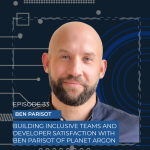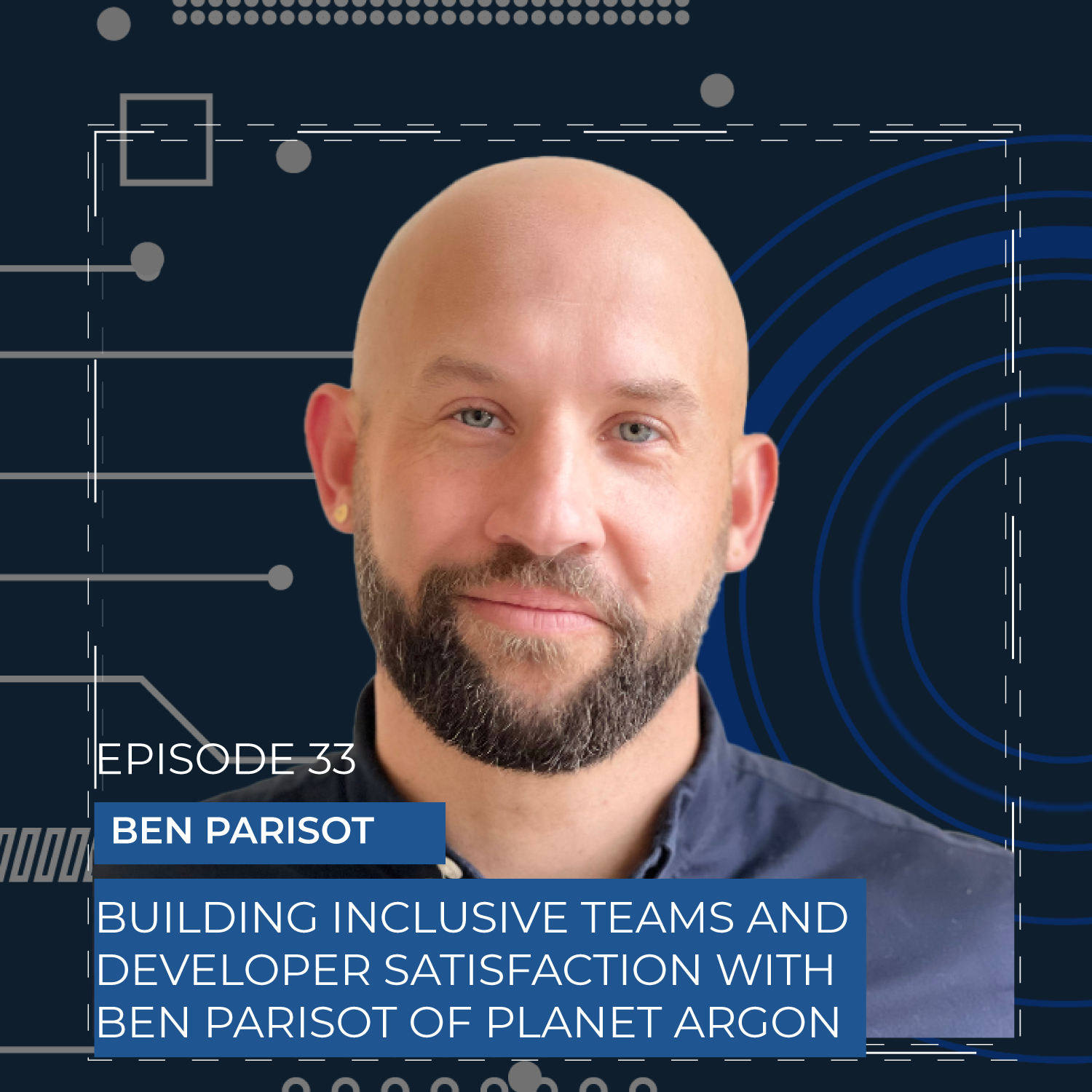
Diversity in tech is essential for driving innovation and solving new, complex problems in new and effective ways. That’s why we need to intentionally create inclusive and diverse environments where our devs can have the space to thrive and bring their unique perspectives to the table.
Today, our guest is Ben Parisot. Ben is the software engineering manager at Planet Argon, a Ruby on Rails agency that specializes in modernizing and futureproofing Rails applications for companies and organizations. As an engineering manager, Ben works closely with engineers to help them broaden their skills, improve their capabilities, and advance in their careers. He is also proudly queer and a strong advocate for LGBTQ+ representation in tech.
In this episode of the Scaling Tech podcast, you can expect many practical tips for building an inclusive team culture and creating a safe space for your developers. Ben and Arin also exchange advice for increasing developer satisfaction and providing value to each team member.
Join us in this episode to learn more about diversity, inclusion, and satisfaction in tech. Stay tuned for future episodes where our host, Arin Sime, will bring even more tech leaders and help you level up your software teams.
ABOUT GUEST
Name: Ben Parisot
What he does: He’s the Software Engineering Manager at Planet Argon, one of Inc. Magazine’s Best Workplaces for 2023.
Company: Planet Argon
Noteworthy: Ben helps engineering teams improve processes, increase productivity, and boost morale. He is proudly queer and a strong advocate for LGBTQ+ representation in tech.
RESOURCES
Out In Tech – https://outintech.com/
Women in Tech – https://women-in-tech.org/
Blacks In Technology – https://www.blacksintechnology.net/
People of Color in Tech – https://peopleofcolorintech.com/
Techqueria – https://techqueria.org/
KEY INSIGHTS
⚡Self-awareness is an essential trait for inclusive leaders. The first step toward promoting inclusivity in the workspace is self-awareness. Once you’re conscious of your privilege and its advantages, you’ll better understand the perspectives of others and be more equipped to create a safer space for everyone.
Ben says, “I think being self-aware in the way that you’ve just described yourself is probably the biggest part. Being aware of your privilege and being aware of what it means to be this white male in this industry, just sort of the doors that that opens for you, myself included. I would say that there’s structural, systemic things that companies can do to be more inclusive and provide safer spaces for people coming on to their teams, and there’s also individual stuff that team members will need to learn on their own, possibly at the behest of the company through trainings and stuff.”
⚡ What is developer experience (DevEx), and why does it matter? Developer experience is not just general productivity or employee satisfaction. It refers to anything that affects developers’ overall satisfaction, such as workflows and processes.
Ben explains, “When we’re talking about developer satisfaction or developer experience, we’re talking about things that the developer or your engineering team as a whole is experiencing every day in their day-to-day work that is causing them to like or not like what they’re doing. So these are workflows, deployment workflows, project application setup, PR review processes, how much focus time they have. So there’s lots of different areas that can influence developer experience and lead to more or less satisfaction amongst your team.”
⚡The best way to promote psychological safety within your team is to educate yourself. Education is always key when it comes to promoting inclusion and overall satisfaction within a team. It helps create a safe space but also improves collaboration and team culture.
Ben says, “I think that the most important thing to do is educate yourself. Oftentimes, you have really well-meaning managers, really well-meaning team members that just don’t know where there might be areas that are or things that are making people feel unsafe or unheard. So I would do the research, read DEI experts in the field around queer representation, representation of women and nonwhite people. I would say that talking to your team members is also just a really easy way to do it.”

